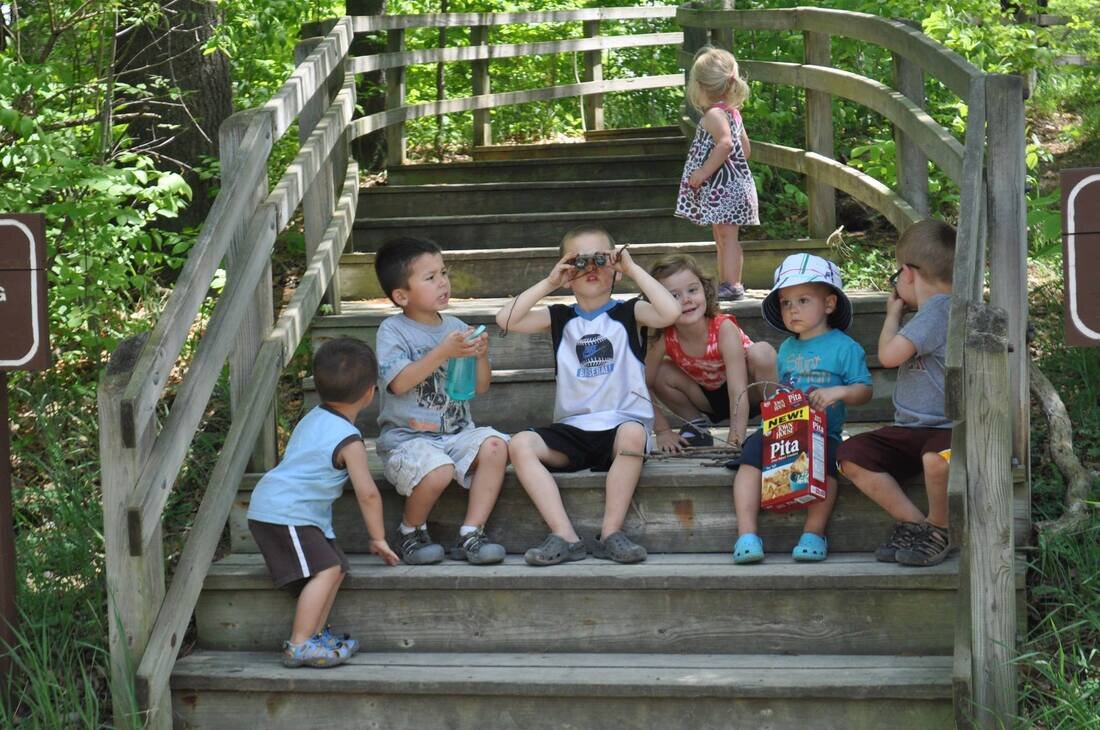The Loss of Genuine Human Connection Has Lead to a Dependence on Screens
Most days my kids ask to use screens and I understand the draw. I had visions of possibly being a screen free family but we didn't pull the plug soon enough and so our kids have grown up with occasional cartoons and video games.
Here is something I know with 100% certainty: If there is ever a time when my kids are on a screen device and the neighborhood kids happen to ring the doorbell, the screens are immediately shut off and our kids go careening out the door. It then becomes hard to get them back inside even for meals!
Almost two decades ago the company Quantified Impressions did some research on eye contact. This Texas-based communications analytics company concluded that children between the ages of 10 and 17 will experience nearly one-third fewer face-to-face interactions with other people throughout their lifetimes as a result of an increasingly electronic culture, at home and in school. This study was done in the year 2000, seven years before the release of the first iPhone.
When we meet the gaze of another, two nervous systems achieve a palpable and intimate apposition. -Richard Lannon
Eye contact is critical and it is directly related to connection. The more eye contact that is made, the deeper the connections and vice versa. There is no telling what the ramifications of experiencing one third less eye contact over a lifetime are. It would be realistic to assume that this number has increased as screens have become more ubiquitous since the year 2000.
Screens certainly offer a fun past time. I have a favorite video game (Ratchet and Clank), a favorite television series (Survivor), and a favorite movie (Home Alone) but when the opportunity arises to choose experiences with friends such as a camping trip over screens, there is not doubt as to what I would choose.
In generations past parents depended upon the genuine human relationships that existed within the neighborhood in order to have enough time to accomplish daily tasks. No single human being or parenting duo has the capacity to juggle all the plates while simultaneously entertaining children. A job that used to be outsourced to the kids that lived around the block for portions of each day was handed back to parents who don't have the margin for it.
My father-in-law great up on a street where there were 70 kids between the first 10 houses on either side. Tribal communities boast children to interact with of all ages. Living in close proximity to other children allows kids to learn and grow in a multi-age environment through play.
We have lost the art of neighborhood play and yet the responsibilities of parents have not changed. No matter how many toys a child has he or she will lose eventually interest. Being stuck inside either alone or with siblings, even with a mountain of toys, just isn’t engaging enough for lost periods of time. Kids are busy doing the important work of pruning their brains and they need a certain types of stimulation to obtain the sensory input that they need. And so we have turned to screens out of necessity.
Though screens may solve the problem of accomplishing parental tasks, it does so at the expense of developmental opportunities. A little screen usage may do no harm but studies show that screen time for kids has increased exponentially since 2004. According to a 2010 study by the Kaiser Family Foundation, kids between age 8 and 18 spend around 7.5 hours a day in front of a screen (computer, television or tablet) and this number doesn't include texting or talking on the phone. The majority of childhood has shifted to virtual experience.
How do we turn this around? The answer is simple, though it may take some planning and effort to execute. We have to take what was working in generations past and change how we do life. We must fight hard for the genuine human connections that trump screen usage, both for ourselves and for our kids. We can begin by inviting other families over for a dinner or for a bonfire. Make this a weekly habit! Or we could make plans for a weekend hike with extended family. Meeting our neighbors and be willing to hear the doorbell ringing all afternoon will go a long way.
Our screens and screen culture have normalized the experience of having conversations with little or no eye contact. We’ve seen it in adults, and we all have certainly seen it in kids. Unfortunately, we are losing something vital and inherently human. -Nicholas Kardaras Ph.D.
We can keep our humanness through interaction with each other. 1000 Hours Outside advocates for replacing screen time simply by providing something better. The option to play outside with friends and family must be a priority if we are to combat excessive screen usage in this day and age. We will have less dependence on screens when we have more dependence on each other.



